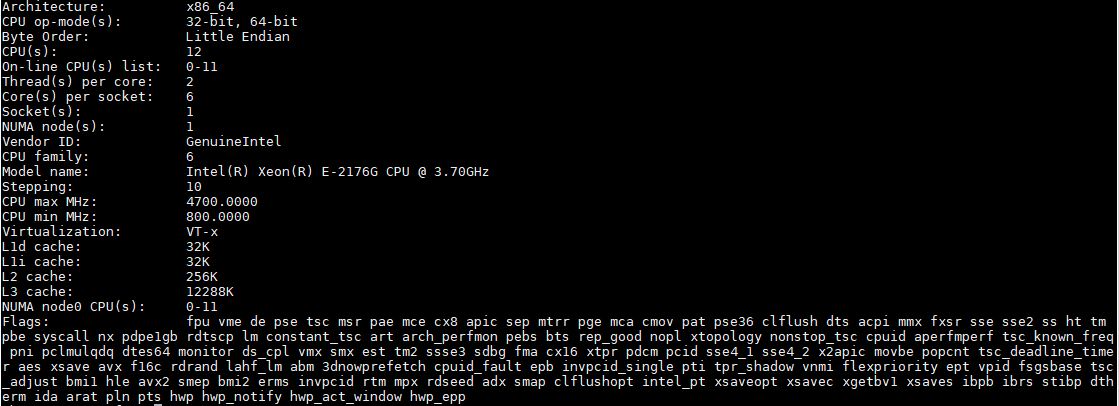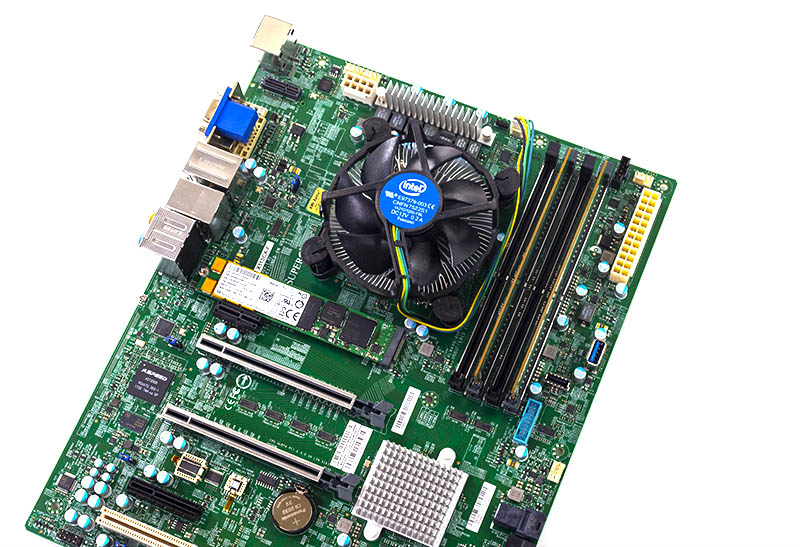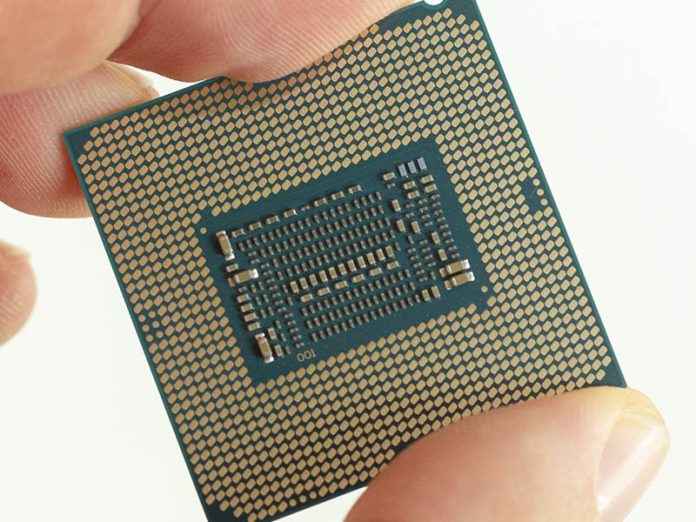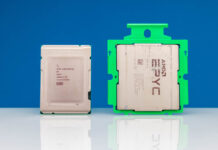Our Intel Xeon E-2176G benchmarks and review are going to show why this CPU is a strong option for cost optimized dedicated server nodes. We believe this represents one of the largest value jumps in almost a decade in this space. It is a SKU priced only about 7% higher than the Intel Xeon E3-1275 V6. For that 7% price increase, you get 50% more cores/ threads, now up to 6 cores and 12 threads. Clock speeds are slightly lower on the base but higher on the turbo. You also get a newer, faster, microarchitecture. For those who do not need the expansion capabilities of Intel Xeon Scalable or other large server platforms, the robust Intel Xeon E-2100 ecosystem and this new range of processors will provide leading price/ performance systems in the market.
Key stats for the Intel Xeon E-2176G: 6 cores / 12 threads and 3.7GHz base clock and 4.7GHz turbo boost with 12MB cache. The CPU features an 80W TDP. This is a $362 list price part which is very reasonable for this level of performance in today’s market. Here is the ARK page with the feature set.
Here is what the lscpu output looks like for the chips:

Test Configuration
Here is our basic configuration for this class of CPU:
- Motherboard: Supemicro X11SCA-F
- CPU: Intel Xeon E-2176G
- RAM: 4x 8GB DDR4-2400 ECC UDIMMs
- SSD: Intel DC S3710 400GB
- SATADOM: Supermicro 32GB SATADOM
The CPU itself supports up to 64GB of RAM, in a 4x 16GB configuration, today. Intel specs say that as 32GB ECC UDIMM modules become available, the CPUs will support 128GB in 4x32GB configurations. We see these platforms using 32GB or less given cost sensitivities.

There are going to be folks who want to point to AMD alternatives. As of this writing, there are really no alternatives in this space because while AMD may have competitive CPU parts, vendors have a vibrant Intel Xeon E-2100/ Core i3 ecosystem. AMD needs to do some work here to catch up, but it is not a focus market for them. Single socket servers in this segment are a relatively low volume area.
Next, we are going to take a look at our Intel Xeon E-2176G benchmarks, we are then going to focus on power consumption then conclude with our final words on the processors.





No AVX-512 means you cannot benefit from optimizations from that codepath.
It’s unclear to me which OpenSSL version STH did use and if it included support for it; and which versions have been used in the past, to compare. From what I can tell using numbers of my servers with a D-15xx, STH’s neither supported it nor did STH use the more relevant to today’s market ‘ecdsap256’ for benchmarking signing and verifying .